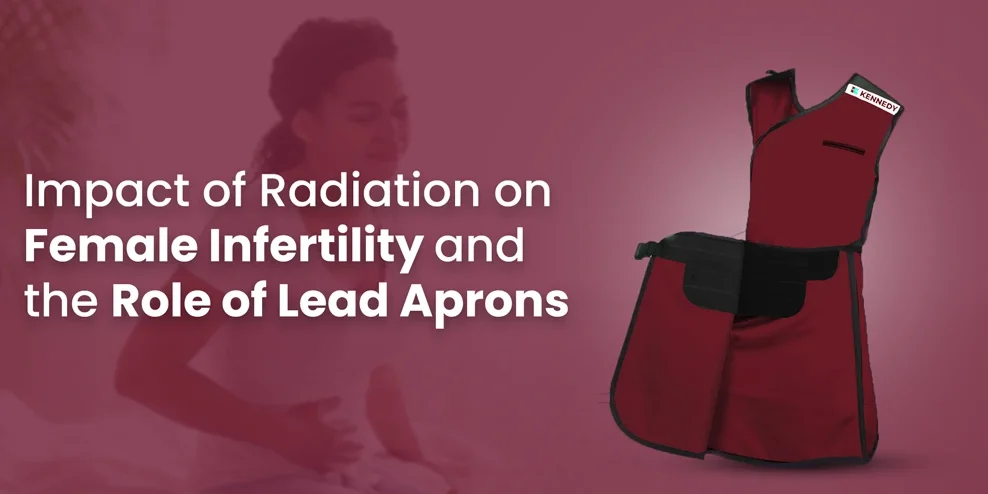The use of radiation in diagnostic imaging has increased due to its multiple benefits and promising outcomes. However, this also comes with inherent risks, particularly concerning female fertility. Radiation exposure, while essential for accurate diagnosis, can cause significant threats to reproductive health. In this blog let us talk about how radiation affects female fertility and the critical importance of protective measures like lead aprons and ovarian shields are essential for both medical professionals and patients.
How Radiation Impacts Female Fertility?
Radiation, in its various forms such as X-rays and CT scans, has the potential to affect female fertility through several mechanisms. Prolonged or high-dose exposure can damage ovarian follicles, leading to diminished ovarian reserve and premature menopause. This condition not only reduces the chances of conception but also poses challenges for future reproductive health. Radiation exposure may induce genetic mutations in oocytes, heightening the risk of infertility, miscarriage, or congenital abnormalities in offspring.
Triggers of Female Infertility Beyond Radiation
While radiation is a significant concern, female infertility can also originate from a variety of other factors. These include age-related declines in fertility, hormonal imbalances, conditions such as PCOS and endometriosis, and autoimmune disorders affecting reproductive organs. When combined with radiation exposure, these factors can amplify fertility challenges, underscoring the necessity for stringent protective measures in medical settings.
The Role of Lead Aprons and Ovarian Shields
Central to radiation safety protocols are lead aprons and ovarian shields, crucial protective gear designed to minimize radiation exposure during diagnostic procedures. Lead aprons, fashioned from heavy metal, effectively absorb and deflect scattered radiation away from vital organs, including the reproductive system. This shielding is particularly critical for healthcare professionals routinely exposed to radiation in their daily practice.
Protecting Doctors and Patients
For healthcare providers, especially those in radiology, the consistent use of lead aprons and ovarian shields is very important. These protective measures not only safeguard fertility but also mitigate long-term health risks associated with radiation exposure. By adhering to strict safety protocols and utilizing advanced protective equipment, healthcare facilities can ensure both the well-being of their staff and the optimal care of their patients.
Comprehending the impact of radiation on female fertility and using shielding measures like lead aprons and ovarian shields play a significant role in preventing infertility and other health problems.







